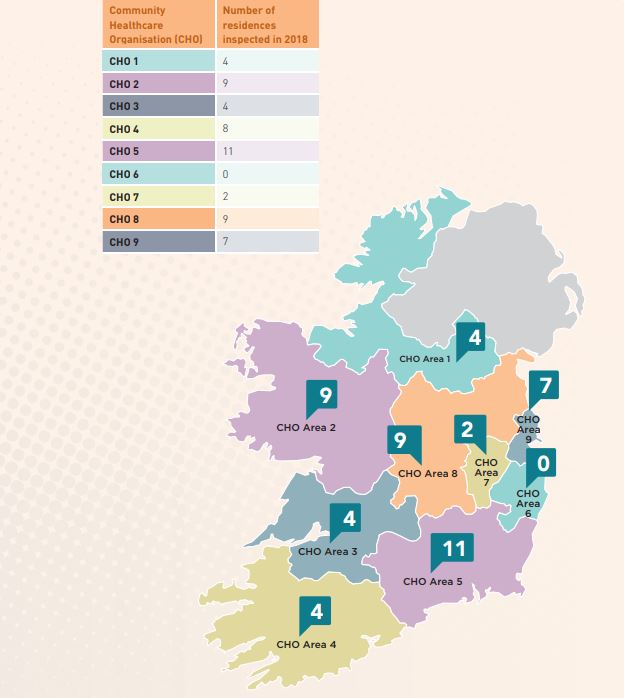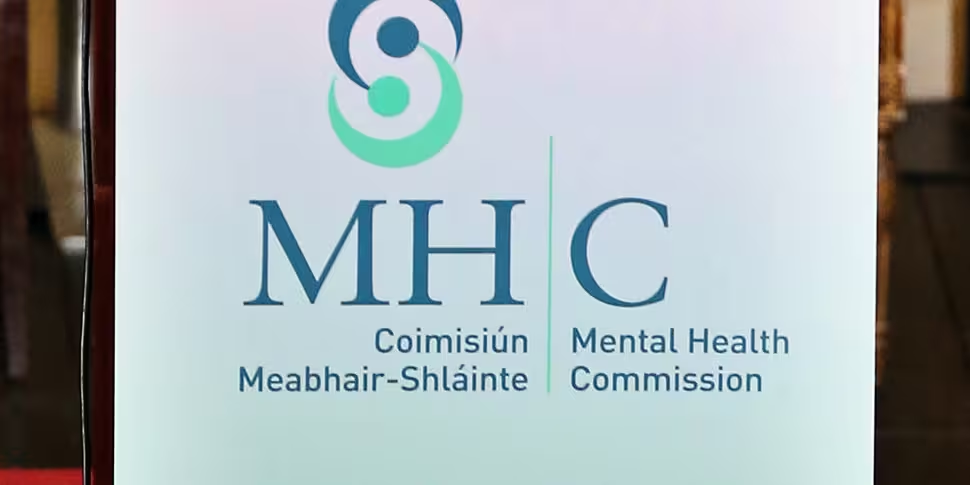A new report has identified human rights breaches for residents of unregulated 24-hour supervised homes.
The Mental Health Commission says "minimal progress" has been made to address the most basic of human rights for around 1,200 of the most vulnerable people over the past 14 years.
In its 2018 report on 54 of the country's 118 supervised residences for people with mental illness, the commission emphasised the need for these residences to be regulated to protect the residents and reduce the risk of abuse.
Dr Susan Finnerty, who authored the report, says: "The human rights breaches relate to a number of areas.
"These include the right to privacy, the right to a clean, well-maintained accommodation, the rights of service users to choose where they would like to live, the right to independent living with appropriate supports - and the right to access appropriate care and treatment through access to rehabilitation and recovery services."
She said one of the biggest issues was around privacy, which was "of serious concern".
Some 91% of residences that had shared rooms did not provide any privacy, even curtains between beds, within shared bedrooms.
While 57% of residences offered all residents single room accommodation, one residence had four-person bedrooms.
And residents were unable to lock their bedroom doors in 88% of residences.
While in 2018, a significant proportion of residences - 43% - had 10 or more beds.
This was despite the recommendation of the 2006 national health policy 'A Vision for Change' that these residences should have no more than 10 beds.
 Source: Mental Health Commission
Source: Mental Health CommissionThe 24-hour staffed community residences were established to allow people with mental health problems to live in the community, instead of large psychiatric hospitals.
The residences house people who have enduring mental illness or intellectual disability - many with severe and complex mental health problems.
The commission says an expected decrease in the requirement for the current level of 24-hour high-support accommodation has not matrialised.
Apart from the fact that these residences are unregulated, which leaves residents at risk of abuse, the report outlined that there are "ongoing human rights breaches" for the residents who live in these homes.
Dr Finnerty also expressed her concern about the condition of the residences - only 46% of which were in good physical condition.
"Nineteen percent of residences were in such poor condition that it showed disrespect for the residents' dignity, while 35% required improvement.
"There is an insufficient number of rehabilitation and recovery teams, and a lack of adequate staffing of these teams to provide a comprehensive service.
"Assessments are now carried out to assess residents' needs but many of these needs are unmet due to lack of resources.
"Only 43% of residences provided multidisciplinary individual care plans for their residents", Dr Finnerty adds.
Just 22% of residences provided a key to residents for their bedrooms, while almost one-third of residences did not allow residents to access the kitchen.
Dr Finnerty says the remaining 24-hour supervised residences - those that have not already been inspected in 2017 and 2018 - will be inspected this year.









